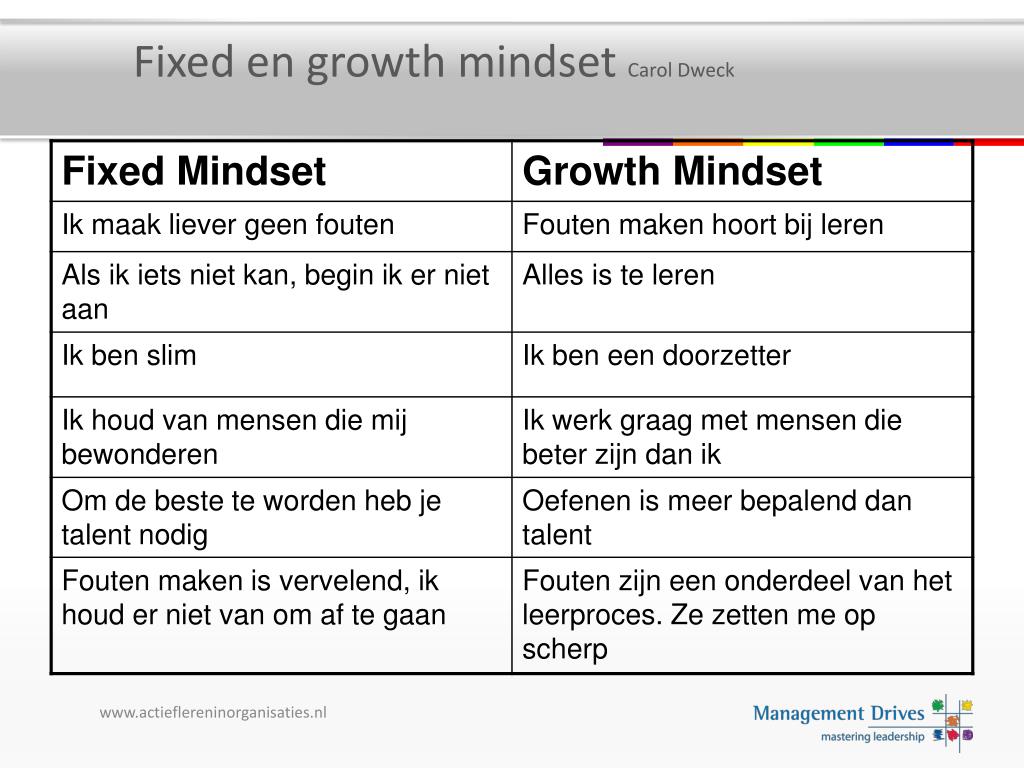

But they are meaningless to employees if the company doesn’t implement policies that make these values real and attainable. You can’t argue with lofty values like growth, empowerment, and innovation. Just espouse a growth mindset, and good things will happen.

In all our research, the outcome - the bottom line - follows from deeply engaging in these processes. It’s critical to reward not just effort but learning and progress, and to emphasize the processes that yield these things, such as seeking help from others, trying new strategies, and capitalizing on setbacks to move forward effectively. Unproductive effort is never a good thing. This isn’t true for students in schools, and it’s not true for employees in organizations. A growth mindset is just about praising and rewarding effort.A pure growth mindset doesn’t exist, which we must acknowledge to attain the benefits we seek. Everyone is actually a mixture of fixed and growth mindsets, and that mixture continually evolves with experience. My colleagues and I call this a false growth mindset. People often confuse a growth mindset with being flexible or open-minded or having a positive outlook - qualities they believe they’ve always had. I already have, and have always had, a growth mindset.But when I probe, I often discover that people have a limited understanding of the idea. “Growth mindset” has become a buzzword in many major companies, even working its way into their mission statements. Read more about crisis managementĥ Ways a Crisis Can Help You Cultivate a Growth Mindset In contrast, people at primarily fixed-mindset companies report more cheating and deception among employees, presumably to gain an advantage in the talent race. When entire companies embrace a growth mindset, their employees report feeling far more empowered and committed they also receive greater organizational support for collaboration and innovation. This is because they worry less about looking smart and put more energy into learning. They tend to achieve more than those with a more fixed mindset (those who believe their talents are innate gifts). To briefly sum up the findings: Individuals who believe their talents can be developed (through hard work, good strategies, and input from others) have a growth mindset. This has started to happen with my research on “growth” versus “fixed” mindsets among individuals and within organizations. But popularity has a price: People sometimes distort ideas and therefore fail to reap their benefits. And they are even more gratified when their ideas make a difference - improving motivation, innovation, or productivity, for example. Scholars are deeply gratified when their ideas catch on.


 0 kommentar(er)
0 kommentar(er)
